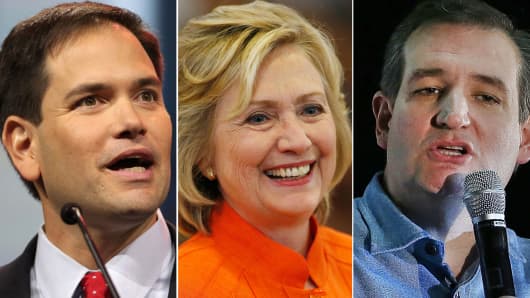Iowans may epitomize middle America, but their caucus last night kicked an oddly European election into high gear. Two mass movements that have long been mainstays of European elections, one socialist and one nationalist, emerged overnight in revulsion to the Clinton and Bush dynasts decreed by the party elites.
Socialism and nationalism typically gain popularity when society's trusted leaders fail to grapple with challenge and change.
Americans today see their employment prospects dwindling and their hopes for social mobility evaporating. They see China, Russia, Iran, and ISIS ascendant on the global stage.






